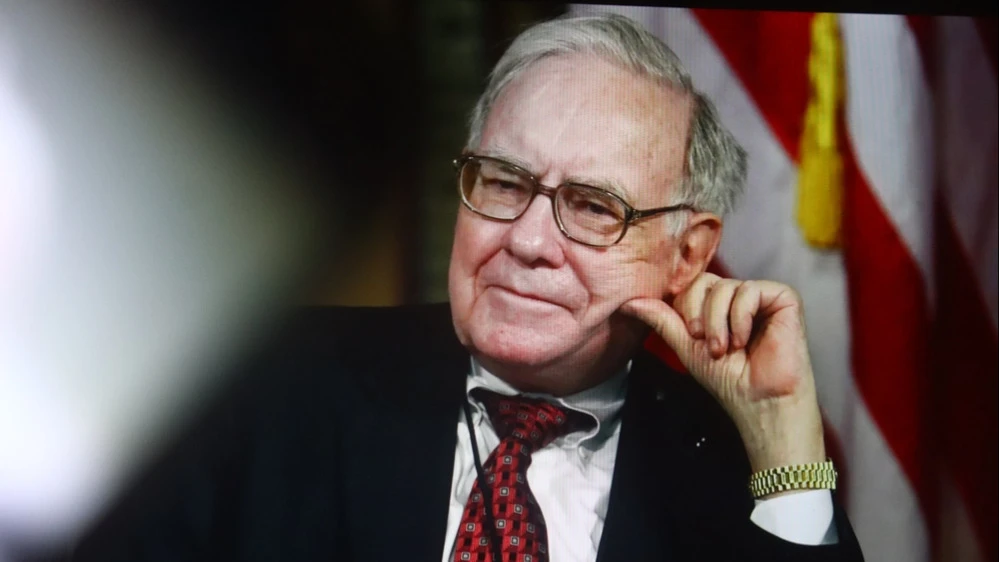UnitedHealth shares have risen thanks to Buffett's confidence. Should we buy them after him
The question is not whether a stock has potential, but when it is realized, Bank of America says

Investors looking to retrace the steps of Berkshire Hathaway CEO Warren Buffett, who bought shares in insurer UnitedHealth last quarter, should consider the key risks facing the company, Bank of America analysts warned. The main threat, they said, is changes to the Medicare Advantage program that could severely impact the company's profitability in the coming years. But if investors are willing to look at a five-year horizon, there's a chance for a good outcome, BofA noted.
Details
The "Oracle of Omaha" strategy, as Berkshire Hathaway CEO Warren Buffett is sometimes called, of buying shares of insurance company UnitedHealth could succeed over the long term, Bank of America analyst Kevin Fishback wrote in a note cited by Barron's.
Berkshire Hathaway disclosed on Aug. 14 that it bought 5 million shares of UnitedHealth during the second quarter. The next day, the insurer's securities, which had lost more than half their value over the past 12 months, soared 12%, marking their best day since March 2020. That said, UnitedHealth Group remains the worst performing stock in the Dow Jones index in 2025, Barron's noted.
"Berkshire Hathaway's investments are a positive signal," Fishback wrote in Barron's outline. - But they only confirm a widely held view among investors: that UnitedHealth's earnings are under pressure right now, and if you're willing to look at a five-year horizon, there's a chance for a good outcome. The question is not whether there is upside potential, but when it will be realized."
According to Fishback, there are two key developments in the next six months that will clarify UnitedHealth's outlook. Both are related to Medicare Advantage reform, a program that allows insurers to provide older Americans with an alternative to the government's Medicare program and receive a flat rate payment from the government for each person each month, Barron's explained.
Risk one - threat to profit and profitability
The first development concerns bonus payments that insurers receive under Medicare Advantage, which can have a big impact on the revenue and profits of businesses, including UnitedHealth, BofA warned. In the fall of 2025, CMS (the division of the U.S. Department of Health that administers Medicare) plans to update the rating system that Medicare Advantage uses. Right now, a five-point scale is in place, and plans with a four-star rating or higher receive a 5% bonus on payments.
However, it is becoming increasingly difficult to get a high rating: while in 2022 four stars received about 68% of plans, last year this figure fell to 42% of nearly 550 programs, writes Barron's. At the same time, the volume of bonuses will reach $12.7 billion in 2025 alone, and over the past 10 years, $87 billion has already been paid out, according to data from the Kaiser Family Foundation, a research organization.
"In a business with a target margin of 3-5%, ratings performance can determine whether Medicare Advantage will be profitable or unprofitable," Fishback and other BofA analysts said in a note. - If the number of stars drops significantly in 2027, the return to normal profitability will be delayed until at least 2028, leaving the stock in limbo for another year."
BofA used to be confident in UnitedHealth's ability to hold on to its stars, but the scale of the current problems facing the company shows that the company's management has been poorly managed for several years: this creates a risk of unpleasant surprises, Fishback added.
UnitedHealth declined to comment when asked by Barron's.
Risk two is for revenue
The second CMS update, scheduled for February 2026, will affect the coding system by which Medicare Advantage payments are determined, Barron's writes. The coding changes could reduce insurers' overall revenue under the program. While CMS has already announced a 5.06% increase in payment rates for 2026, the highest increase in a decade, it may not be enough for UnitedHealth, BofA warned. The coding change "has the potential to completely offset the progress UnitedHealth has made in recent years," Fishback wrote.
For now, according to BofA analysts, what matters most is the company's ability to meet its own earnings forecast. In late July, new UnitedHealth CEO Stephen Hemsley announced an annual earnings target of $16 per share - below Wall Street's expectations, but leaving room for exceeding expectations, Barron's writes.
"If the company consistently exceeds and raises the outlook (albeit moderately, while building reserves and not overstating the bar), it will help restore confidence that management is meeting the challenges and, more importantly, leading the healthcare trends," Fishback concludes.
Who else has shown interest in the company
In the second quarter, UnitedHealth shares were bought not only by Buffett, but also by other investment gurus. Among them is Michael Burry, famous for predicting the 2008 mortgage crisis. Burry's fund Scion Asset Management invested in the insurer's shares for $6 million and call options on 350,000 securities with a face value of more than $100 million.
Appaloosa Management, a hedge fund managed by David Tepper, also increased its investment in UnitedHealth by more than 1,300%, bringing the position to $764.3 million. It is now the second-largest stock in the fund's portfolio, CNBC writes.
This article was AI-translated and verified by a human editor
